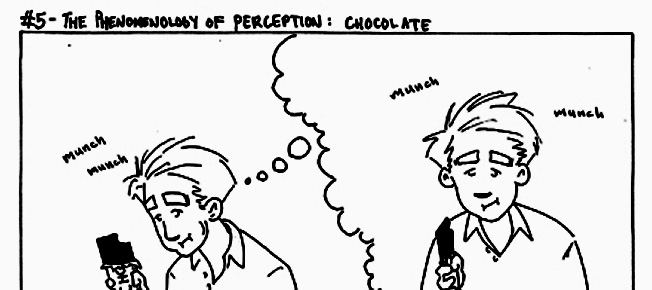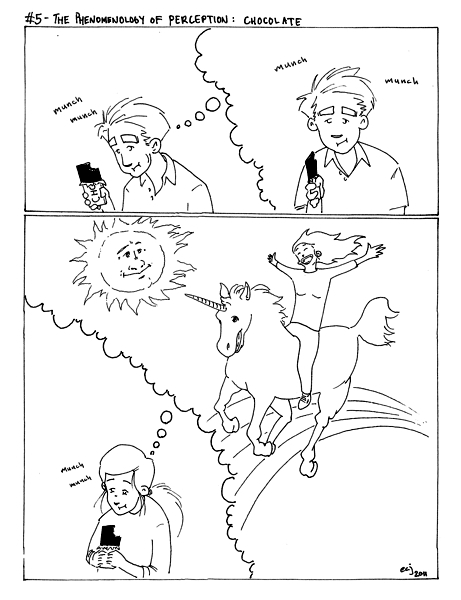All this talk about Cartesian Dualism and Daniel Dennett’s entertaining interpretations of what it could mean in the real world (see comments between myself, Vaneeesa, and Yordie on my previous post on Descartes) has made me revisit the embodied philosophy of Merleau-Ponty. What is especially interesting is the relevance of his theories to visual arts, extending to virtual/digital art. Basically, Merleau-Ponty theorized in his seminal work, Phenomenology of perception, that skills are acquired as a direct result of experiencing objects and situations and that these encounters determine how future situations and objects will be handled. In other words, according to Merleau-Ponty, our relation to the world is transformed as we acquire such skills.
We can see right away how this theory rejects Cartesian dualism in that it presupposes that the mind is not reduced to the sole workings of the brain, but that the mind and the body work in tandem through social interaction to understand the world. What is unique to Merleau-Pontian concepts is the interjection of imagination – the idea of the “virtual body” reconciles the gap between actual and virtual space. The virtual body is an imaginative dimension of embodied existence which makes it possible, within this context, to generate alternative perspectives on the body, extending to skills but also aesthetic experience, consequently allowing for these perspectives to be reshaped.
If anyone is interested in learning more, or have knowledge to share, let me know. I found this wonderful lecture by Hubert Dreyfus that summarizes some of these concepts.
Enjoy!

